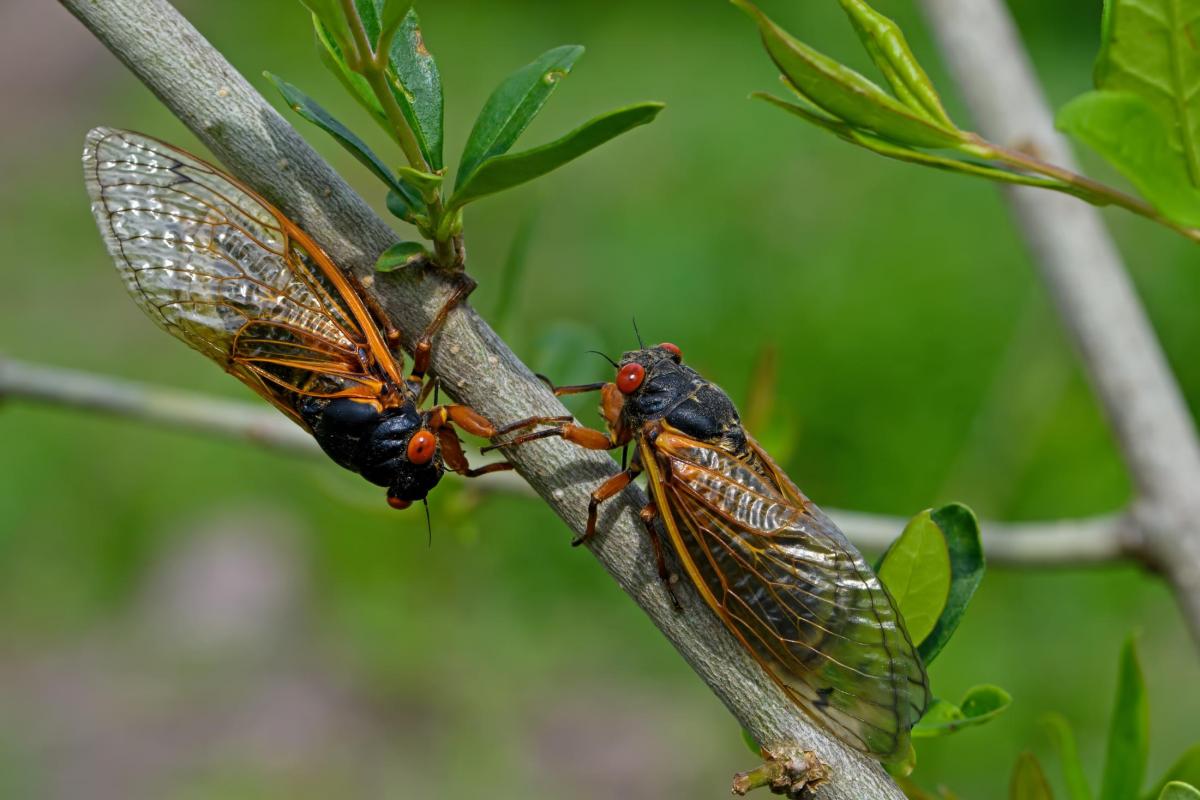
Linda Rains Allman doesn’t have to wait 17 years to be immersed in the cicada song. Having tinnitus, or ringing in the ears, the retired computer programmer from Phoenix, Maryland can hear cicada-buzzing-like noise in her head all year long.
With a tsunami of cicadas ascending from the Maryland soil this year, ripping through the summer sky with their loud songs, Allman’s ear ringing does not get worse, but—surprisingly—better. With the cicada melody, she is able to find a sense of normalcy back in her life.
“I absolutely love them,” says Allman, who now enjoys going out in the morning and listening to the cicadas. “I just feel more like a normal person, because everybody is hearing it, not just me.”
Allman is likely not the only person benefiting from the cicada buzzing that is often tumultuous to many. With billions of Brood X cicadas emerging in the eastern United States, experts say that the love calls of these once-every-17-year insects, which resemble a common tinnitus sound, may distract some people from their tinnitus and soothe their ear ringing. On the other hand, audiologists also warn that for people who dislike the cicada noise, the singing bugs can exacerbate the anxiety towards their tinnitus, making the conditions more irritating.
About 10 percent of Americans have tinnitus, though the precise number is hard to assess, says LaGuinn Sherlock, a research audiologist at Walter Reed National Military Medical Center. Although tinnitus is common, it is more of a symptom than a disease, and people may react to it differently—ranging from not being bothered at all to being severely impacted. Scientists have yet to discover the causes for tinnitus, although in most cases, people who have it also seem to have hearing loss. Other medical conditions—such as ear infections or head trauma—are also shown to be linked to tinnitus.
While there is no cure, there are means to alleviate the symptom, including sound therapies in which audiologists introduce suitable white noise to rewire the brain to react less to the internal sounds.
For some people, the cicada noise is “the perfect sound for mixing in with their tinnitus,” says Lachelle Lazarus, a clinical audiologist at the University of Maryland Medical Center. So the symphony orchestrated by the billions of cicadas this year may become a natural sound therapy. But not everyone with tinnitus enjoys the cicada noise, including Sherlock’s colleague, Nancy Solomon, a speech pathologist at Walter Reed.
“What I thought at the beginning is, ‘Oh, good, this noise will help me with my tinnitus,’” says Solomon, who lives outside of Rockville. But as the cicadas become louder and louder, Solomon says it has become increasingly difficult for her to go and enjoy the outdoors. “I think I’ll be happy when [the cicadas] leave,” she adds.
Dr. Matthew Stewart, an otolaryngologist-head and neck surgeon at Johns Hopkins Hospital, says being exposed to “relentless auditory assault of cicada sounds” can be “triggering and annoying.” And that, in turn, can make some people perceive their tinnitus to be worse. “[It is] just like an engine overheating,” says Stewart, comparing the continuous burdens from the cicada noise on the ears to attending a loud concert or working on an airport tarmac.
In fact, cicadas are among the loudest insects on earth—in some cases pitching louder than 100 decibels, which is as ear-splitting as football games. According to the U.S. Centers for Disease Control and Prevention, being exposed to noises at 100 decibels for more than 15 minutes can lead to potential hearing loss. To that end, Stewart recommends that people who have tinnitus, especially those who are vulnerable to cicada noise, should wear ear protection when going outside or avoid it altogether.
As for people with tinnitus who find cicada noise therapeutic, Lazarus, the University of Maryland audiologist, recommends people listen to some level of the cicada sound without letting it completely mask their tinnitus. That way, she says, the brain can effectively associate the cicada sound with the tinnitus sound. And, hopefully, after gradual training, the brain can change its perception to tinnitus and react to it in a benign way, even after the cicada noise goes away.
Regardless of their stance on the cicada choruses, both Allman and Solomon understand that the pleasure—or annoyance—that the noise brings is only temporary. For people with tinnitus, the only way to tame the condition long-term is through habituation—meaning that they essentially learn to live with it.
After all, “cicadas are only here for six weeks,” Solomon says, “we have to deal with tinnitus for years.”
